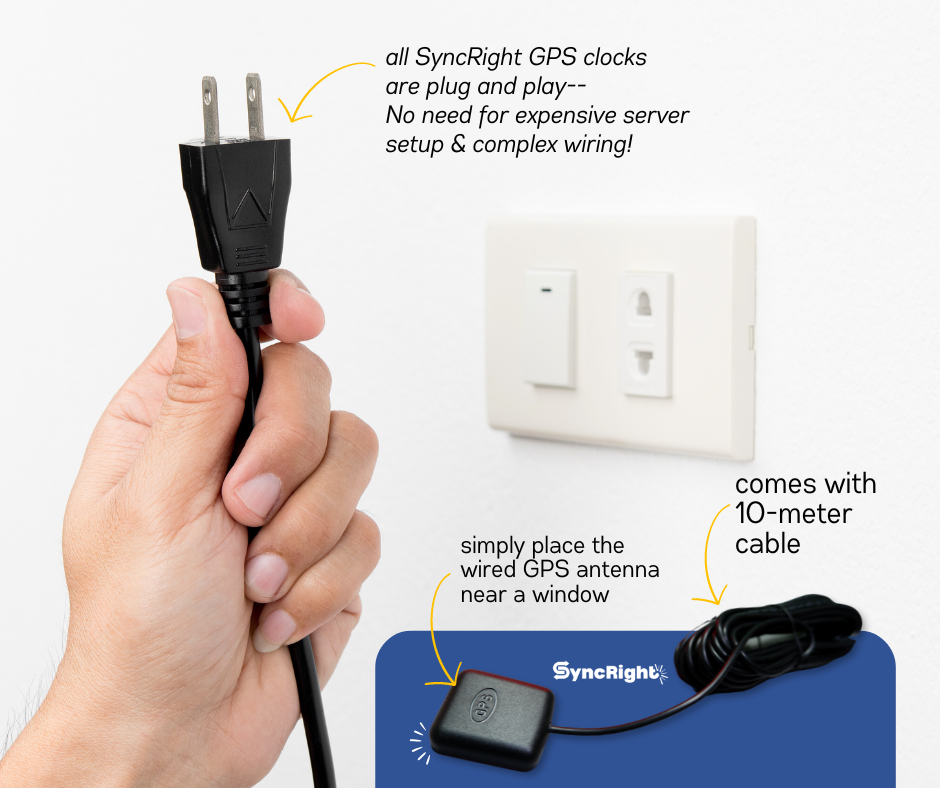Time is money. We’ve all heard this adage, but have you ever truly quantified the cost of being late? In today’s fast-paced business landscape, where precision and efficiency reign supreme, punctuality is not just a courtesy—it’s a strategic advantage.
In this blog, we’ll delve into the compelling statistics and real-world examples that reveal the tangible return on investment (ROI) that organizations can achieve by embracing a culture of punctuality, especially within the context of the Philippine Standard Time (PST) Act of 2013. We’ll also explore how precise GPS clocks can be a game-changer in this pursuit.
The High Cost of Tardiness: By the Numbers
While a few minutes here and there may seem inconsequential, the cumulative effects of tardiness can wreak havoc on a company’s bottom line. Consider these eye-opening statistics:
- Lost Productivity: A study by the American Management Association found that chronic lateness costs companies an average of 3.5 hours per employee per week, translating to billions of pesos in lost productivity annually.
- Missed Opportunities: Late deliveries and missed deadlines can result in lost contracts, dissatisfied customers, and damaged reputations.
- Decreased Morale: Employees who consistently arrive late can negatively impact team morale, leading to decreased engagement and productivity.
- Increased Stress: The rush and anxiety associated with being late can contribute to employee burnout and absenteeism.
- Financial Losses: In the Philippines, a 2019 study estimated that traffic congestion alone costs the economy a staggering ₱3.5 billion daily due to lost productivity and increased fuel consumption. While not directly tied to tardiness, it underscores the financial impact of time-related issues.
The Punctuality Payoff: Real-World ROI
Conversely, organizations that prioritize punctuality reap significant rewards. Here are some real-life examples and statistical evidence:
- Virgin Atlantic: The airline implemented a punctuality improvement program that resulted in a 40% reduction in flight delays, leading to improved customer satisfaction and increased revenue.
- Amazon: The e-commerce giant’s obsession with timely deliveries has been a key factor in its phenomenal growth. Amazon’s “Prime” service, which promises fast and reliable shipping, has over 200 million subscribers worldwide.
- Google: The tech company’s data-driven approach to time management has been instrumental in its ability to innovate and maintain its competitive edge. Google employees are encouraged to track their time meticulously and identify areas where they can be more efficient.
These examples demonstrate that punctuality isn’t just about good manners; it’s a driver of tangible business outcomes.
GPS Clocks: A Precise Solution for Philippine Businesses
The Philippine Standard Time (PST) Act of 2013 mandates the use of a unified time standard across the country, making accurate timekeeping more critical than ever. GPS clocks offer an unparalleled level of precision, synchronizing with atomic clocks to provide a reliable time source that is immune to internet outages and power fluctuations.
Here’s how GPS clocks can boost your organization’s ROI:
- Enhanced Productivity: When everyone is on the same page, time is used more efficiently, leading to increased output.
- Improved Accountability: Accurate time records facilitate fair performance evaluations and identify areas for improvement.
- Streamlined Operations: Optimized scheduling minimizes downtime and maximizes resource utilization.
- Enhanced Customer Satisfaction: On-time deliveries and prompt service build trust and loyalty.
- Legal Compliance: Adhering to the PST Act demonstrates a commitment to accuracy and responsible business practices.
Case Study: Time-Synchronized Success in a Philippine Factory

A manufacturing plant in the Philippines implemented a GPS clock system to synchronize its production lines. This resulted in a 15% increase in output and a 10% reduction in production costs due to improved efficiency and reduced downtime. The company also reported improved employee morale as a result of clearer expectations and reduced stress associated with time pressures.
Choosing the Right GPS Clock for Your Business
When selecting a GPS clock, prioritize the following features:
- PST Act Compliance: Ensure the clock is certified to meet the requirements of the Philippine Standard Time Act of 2013.
- Accuracy: Look for clocks with sub-microsecond accuracy for optimal precision.
- Scalability: Choose a system that can grow with your business and support multiple clocks across different locations.
- Ease of Use: Opt for clocks with user-friendly interfaces and intuitive controls.
- Reliability: Select clocks from reputable manufacturers with proven track records.
At SyncRight, we specialize in providing GPS clock solutions designed specifically for the Philippine market. Our clocks are not only 100% accurate and fully compliant with the PST Act of 2013, but also offer a wide range of customizations and features to streamline your operations and enhance productivity.
Star Communications Holdings Corp










